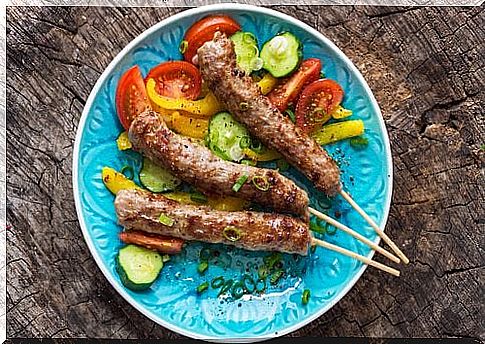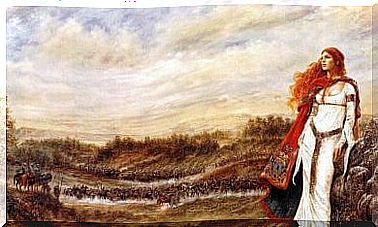Flexitarians: Flexible Vegetarians

When it comes to eating, the options are endless, as we have a wide variety of recipes and foods. Now, each one chooses his diet according to what he thinks best, his thinking and his possibilities. Currently, vegetarians and vegans are well known, but have you heard anything about flexitarians?
The flexitarian diet is gaining in popularity. Its heyday is the result of the fact that people are starting to adopt a more sustainable lifestyle. Below, we share more details about this type of diet that has so many benefits.
Flexitarians, what is your diet?
The word ‘flexitarian’ comes from the combination of two English words, flexible and vegetarian. The term was first used in 1992 in an article written by reporter Linda Anthony. Years later, in 2003, the word flexitarian was chosen as the most useful word of the year by the American Dialect Society.
What do we mean when we talk about flexitarians? We refer to people who maintain an occasional vegetarian diet. So it could be flexible vegetarianism.

However, it should be noted that this type of diet is generally not recognized by the vegetarian collective. This is because, in vegetarianism, meat consumption is not accepted for any reason. Despite this, the number of people who adopt this type of diet is currently increasing.
Do flexitarians have a philosophy about animal abuse like vegetarians? There is no exact answer to this question. There will be people who have it and people who don’t, but what really defines a flexitarian is that they have chosen a healthy and environmentally sustainable lifestyle.
What is the flexitarian diet like? We will show you its main features.
- The flexitarian diet is flexible. Allows you to eat both meat and vegetables, but opting for meat on a circumstantial basis, to promote a healthier and more environmentally sustainable lifestyle.
- Vegetarian diet as a basis. What flexitarians consume most are vegetables. In fact, they do it most of the time.
- Healthy. The flexitarian diet is balanced and healthy. The key is that food choices go hand in hand with well-being.
- Sustainability. Flexitarians are concerned about unnecessary ecological expenses for food. Therefore, they consume these products only occasionally.
- Flexibility. Flexitarians are flexible with their diet. Although they try to be healthy and sustainable, they are not rigid when it comes to consumption.
The flexitarian diet is easier to carry out socially than the vegetarian diet. People who have this form of diet can eat meat when they have a social event or want to go out for something to eat. This, without a doubt, does not generate so much conflict between lifestyle and contact with the social environment.
How do flexitarians differ from vegetarians and semi-vegetarians?
It is not called a flexitarian one who has a vegetarian diet once a week. A vegetarian diet should be maintained most of the time and meat consumption is circumstantial. Likewise, if vegetarians consume meat, they are breaking their eating pattern.
Nor are flexitarians and semi-vegetarians synonymous. The difference is that semi-vegetarians do not include red meat in their diet, while flexitarians do.
So the key to flexitarianism is frequency. So, as we indicated, it is a regular vegetarian consumption, combined with an eventual consumption of meat. So, each flexitarian can make the combination they want. In other words, for occasional consumption, you can choose some or all of the meats.

Benefits of the flexitarian diet
The flexitarian diet has multiple benefits. These are some of them:
- Helps prevent heart disease.
- It’s cheaper, as animal proteins are relatively expensive.
- This way of eating reduces the risk of developing type 2 diabetes.
- Greater environmental sustainability.
- Allows you to enjoy all kinds of food.
- Promotes longer life.
- It can help you lose weight.
- It’s not a rigid diet that leads to obsession.
As Abbigail B.Pace reflects in his study, adopting a flexible diet reduces the risk of breast, prostate and colon cancer, if accompanied by physical activity.
Currently, varieties of this diet are emerging, such as the so-called V6, created by journalist Mark Bittman. This diet proposes not to eat any food of animal origin before 6 pm.
Likewise, there is already a book with recipes for this type of diet. Its author, Dawn Jackson Blatner, gives advice for healthy living through flexitarianism.
As you can see, the flexitarian diet is a form of mindful eating. The fact that it is beneficial to health depends on what each person consumes, because after all, it is a philosophy to improve our well-being and that of the environment.









